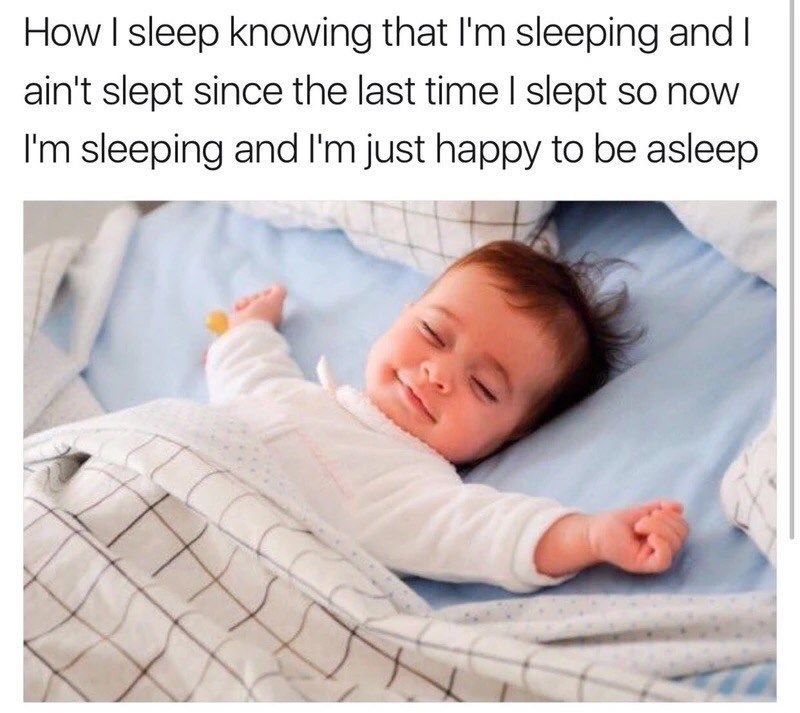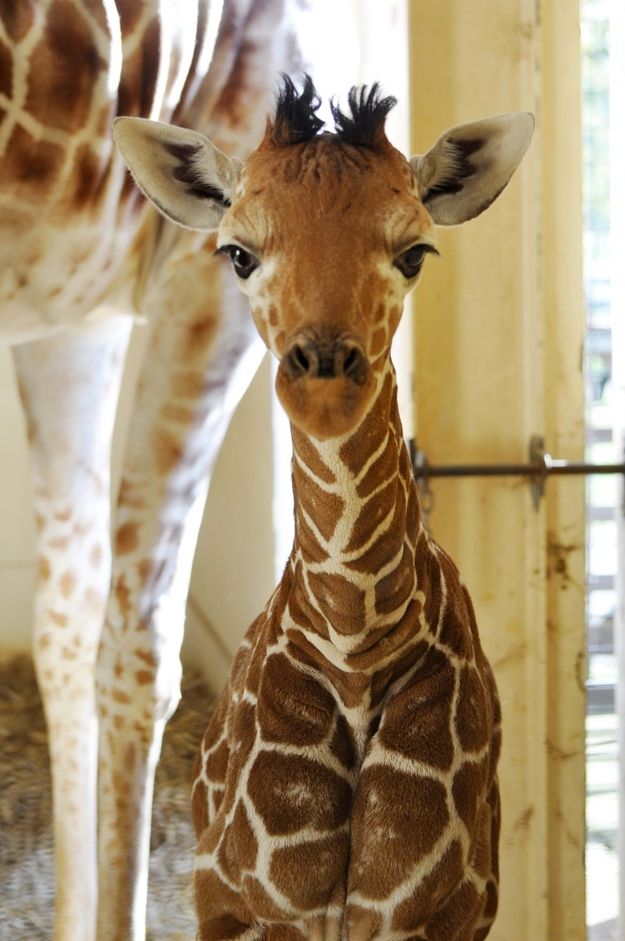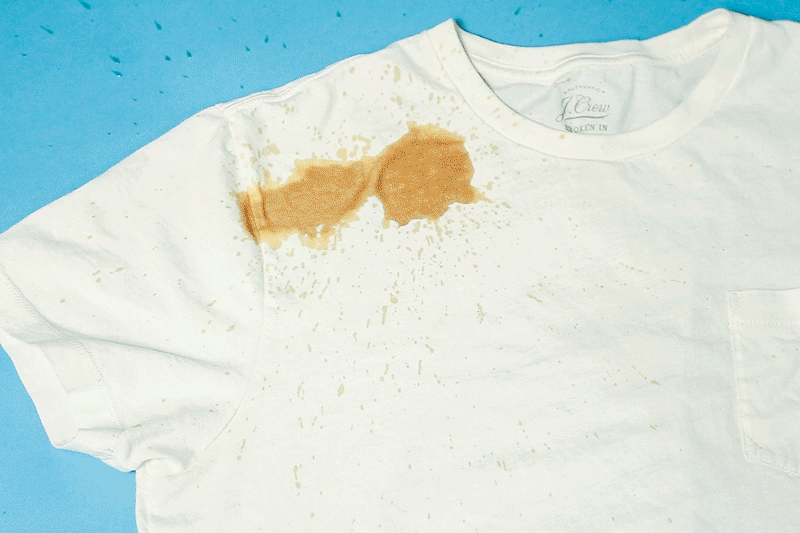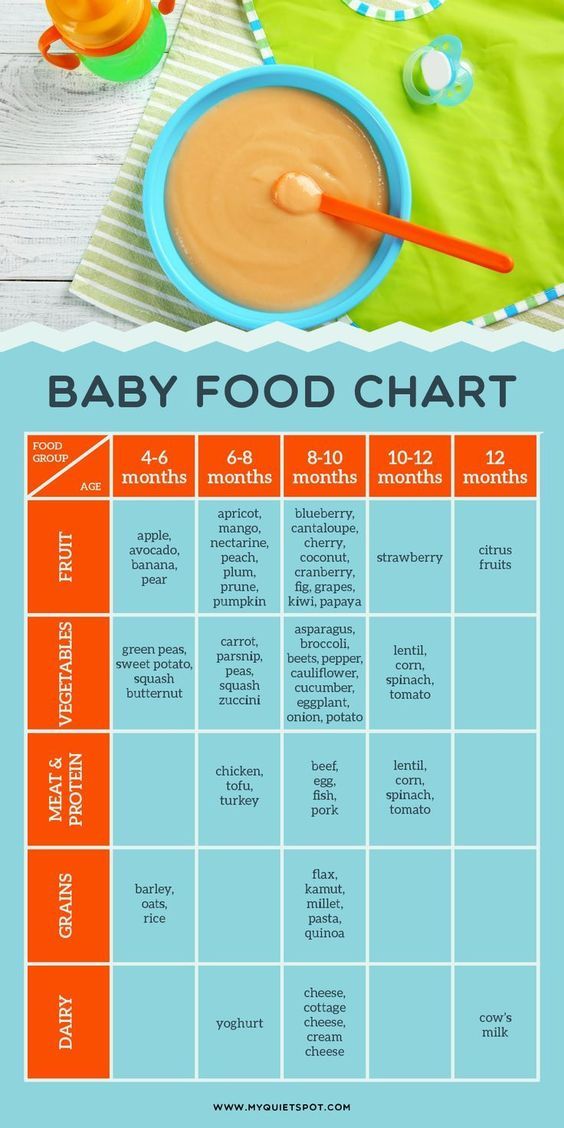When can i let my baby sleep through the night without feeding
When do babies sleep through the night?
Sleepless nights are common in new parenthood, but they do not last forever. Most babies will begin to sleep for longer periods at night from the age of 6 months old.
Newborn babies need to feed every few hours until the age of 3 months. After this, it is normal for infants to feed once or twice during the night.
Most infants can sleep for 6–8 hours without a feed by the age of 6 months. Once they are 9 months old, most infants can sleep for 11–12 hours without a feed.
It can be helpful to start to create a routine for bedtime and feeds early. Remember that every infant is different, so be as flexible as possible.
This article will discuss when babies start to sleep through the night and the sleep duration that is normal at each age.
Newborn babies tend to sleep for 1–4 hours at a time. They will sleep and wake during the day and at night. Most newborns need around 17 hours of sleep in a 24-hour period.
After establishing feedings, a newborn will wake up when hungry and need regular feeds. This spaces out the calories they need and helps them gain weight and grow.
Most infants will begin to develop more regular sleep patterns by the age of 6–8 weeks. They will connect short sleeps into a longer period of sleep.
It takes time for an infant to learn the difference between night and day. By the time they are 4 months old, however, most infants will sleep for twice as long at night as they do during the day.
Sleeping through the night usually means sleeping for 6 hours or more overnight. An infant may wake briefly for a feed and go back to sleep afterward, but this still counts as sleeping through.
It is common for an infant to begin sleeping through the night and then stop. This may be because they are adjusting to new growth or development.
Until they are around 4–6 months old, most infants will need at least one nighttime feed, but they are usually able to go back to sleep afterward. By 9 months, an infant may be able to sleep for up to 11–12 hours without a feed.
Every infant is different, and many things can prevent them from sleeping through the night.
Every infant will need a slightly different amount of sleep, which will change as they grow and develop. Guidelines can help predict how much a newborn or infant may sleep.
For example, the National Sleep Foundation give the following recommendations:
| Age | Recommended hours of sleep |
| 0–3 months | 14–17 hours |
| 4–12 months | 12–15 hours |
| 1–2 years | 11–14 hours |
These figures are for a 24-hour period. Most infants and young children will need naps during the day as well as sleep at night.
Every infant is different, and they may not fit neatly into one of these categories. Differences in weight, development, and personality are common, and all of these factors can affect an infant’s sleep.
Most newborn babies cannot go a whole night without feeding.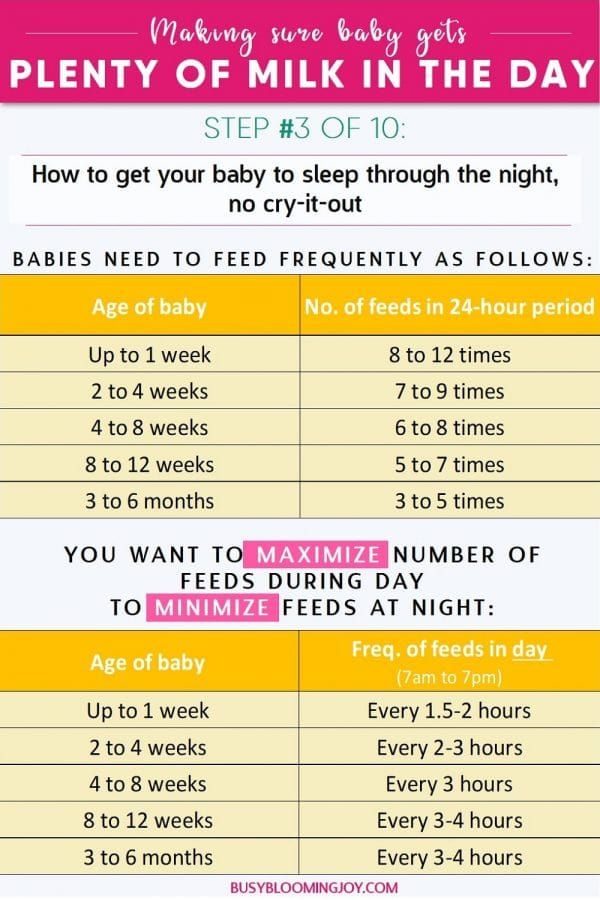 Until they are 3 months old, they may wake often during the night. This may not be at regular intervals, and the pattern is likely to change as an infant grows and develops.
Until they are 3 months old, they may wake often during the night. This may not be at regular intervals, and the pattern is likely to change as an infant grows and develops.
Formula-fed infants often sleep for longer stretches of time and may wake less often at night. This may be because formula takes longer to digest. Overall, however, breastfed and formula-fed infants will sleep for the same amount of time during a 24-hour period.
An infant aged 3 months or older will usually need at least one feed during the night until around 6 months of age. At this point, they may still be settling into the routine of day and night.
Infants aged 3–6 months may associate a feed with sleep. Feeding an infant to sleep can make it harder for them to fall asleep on their own. In time, they may only be able to go to sleep if they have a feed. This can prevent them from sleeping through the night.
Immediate problems that can prevent an infant from sleeping include:
- being too hot or too cold
- illness
- adjustments during growth, such as hunger or sleep requirements
Most of these issues should not last longer than a few days, however.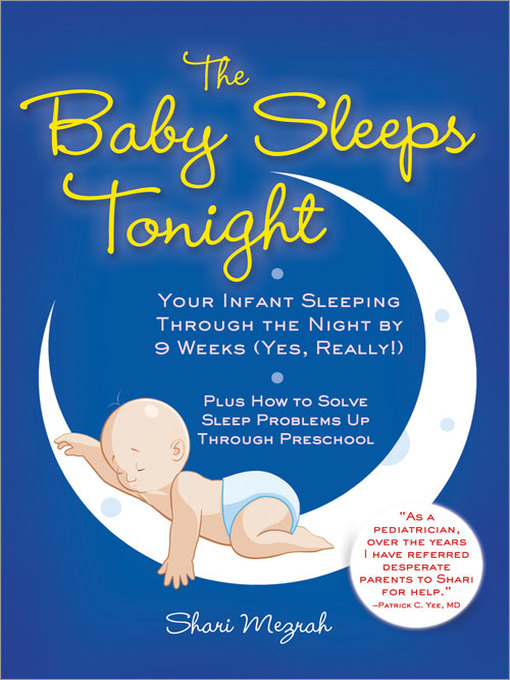
It is common for infants to start sleeping through the night and then begin to wake again. This is sometimes known as sleep regression.
Sleep regression can occur when development speeds up. It can also occur when the infant’s sleep needs change.
Sleep regression can last for days or weeks, but parents and caregivers can usually address the causes of this.
When an infant reaches 3–4 months of age, they may sleep less during the day and longer at night.
An infant should sleep in the same room as a parent or caregiver until they are at least 6 months old. They should sleep on their back and be able to move freely.
The following tips can help an infant learn to sleep through the night:
- Prevent the infant from becoming overtired: Look for signs that the infant is getting sleepy. Signs can include drooping eyelids, slow movements, yawning, and rubbing the eyes. Taking naps during the day can help stop an infant from becoming overtired by bedtime.
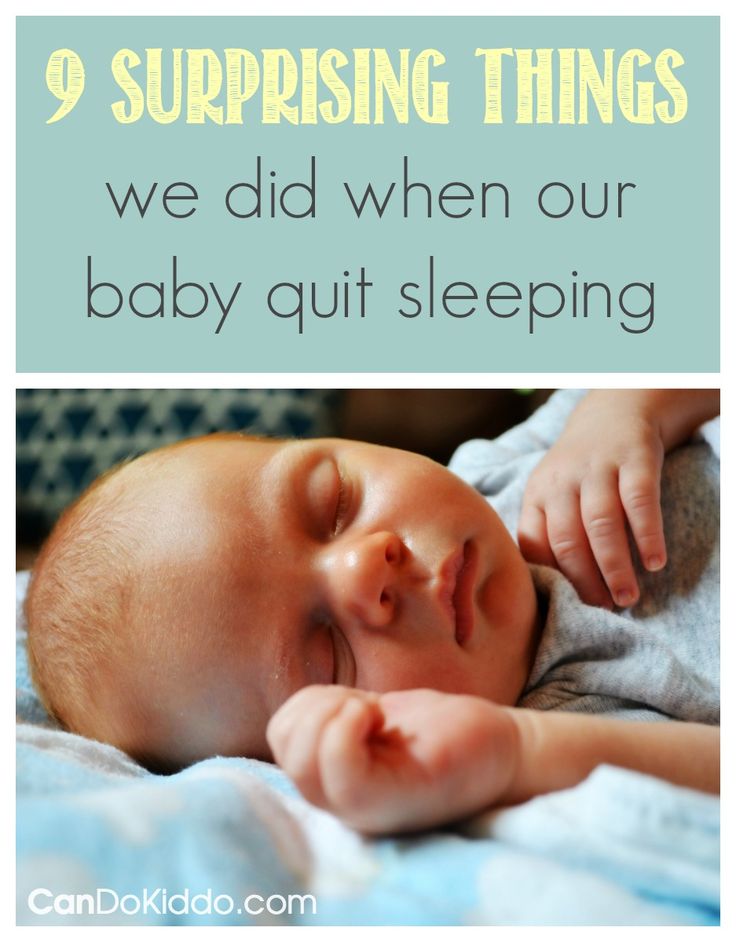
- Keep a distinction between night and day: This helps the infant learn that nighttime is for sleeping. In the evening, dim the lights, use blackout curtains, keep noise to a minimum, and speak softly.
- Keep a consistent bedtime: This can help create a routine.
- Create a simple, relaxing bedtime routine: This could include a bath, a short massage, a story, or gentle music. Most infants will learn to link a bedtime routine to sleep.
- Connect a bed with sleeping: If the infant always falls asleep being held or fed, they may link this to sleep and not be able to fall asleep in bed.
Feeding
When an infant reaches 3 months of age, aim to create a feeding schedule. Try to stick to this schedule, so that the infant adapts and learns to fall asleep without a feed.
It is also a good idea to feed the infant, then put them to bed — sleepy but awake — soon after. Feeding the infant close to bedtime can help prevent them from getting hungry and waking soon after going to sleep.
Slowly reduce nighttime feeds to help the infant sleep for longer periods at night. A parent or caregiver can do this by:
- gradually leaving longer between feeds
- feeding for a shorter period
- calming the infant in their bed when they wake, instead of automatically feeding them
Try to have them not fall asleep while feeding. If they wake in the night, it is less disruptive if they can go back to sleep without a feed.
If an infant is not regularly sleeping through the night by the time they are 6 months old, it may be best to seek a doctor’s advice. Although it is unlikely that anything is wrong, the doctor will check the infant’s health and be able to offer support.
Lack of sleep can be very challenging for parents and caregivers. Try to set good habits early, but be flexible and make changes to routines if needed. Try to rest or nap during the day if possible.
Most infants will be able to sleep through the night with one or two feeds by the time they are 6 months old.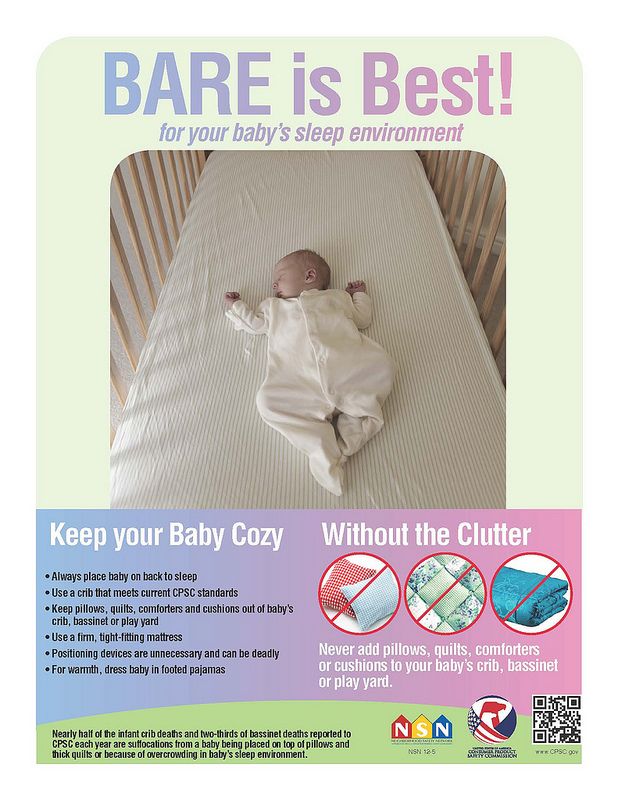
However, every infant is different and will have their own pattern of sleeping. These sleeping habits will change as they grow and develop.
Creating a bedtime routine and feeding schedule can help. Expect some changes to this routine as they learn new skills and start teething.
How long should a baby sleep at night without eating?
Photo credit: iStock.com / AleksandarNakic
Most babies are able to sleep through the night – or sleep for at least six hours without waking up to eat – sometime between 3 to 6 months of age. Healthy babies who are born full-term are generally able to sleep through the night without a feeding starting at 3 months of age or when they weigh 12 to 13 pounds. However, babies' sleep cycles only become consistent and predictable around the time they're 6 months old.
Just because babies are technically able to go through the night without a feeding, however, doesn't mean they will. Night wakings can happen for many other reasons, including separation anxiety, an inability to self-soothe back to sleep, sleep regressions, teething, and bed-sharing.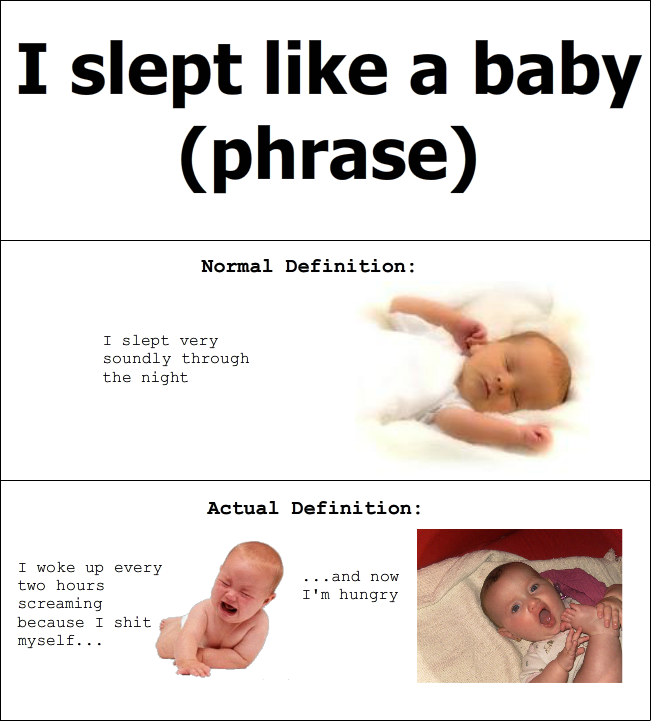
If your baby doesn't start sleeping through the night without a feeding between 4 to 6 months of age, you can try night weaning. There are lots of different sleep training methods, from the cry-it-out method to the fading method. Learn about your options and choose one that feels right for you and your baby.
How long should a newborn sleep at night without eating?
Newborns generally sleep for two to three hours before waking to eat, day and night. As they get older, babies are usually able to sleep for increasingly longer stretches of time at night without waking to eat.
Between the age of 2 to 3 months old, healthy babies are often able to sleep for six hours without feeding. Research suggests that about half of babies are able to sleep at least six hours without a nighttime feed by 3 months of age. That rate rises to 62 percent by 6 months of age and 72 percent by 12 months of age, according to the National Sleep Foundation.
So how can you prepare your baby to sleep longer periods at night without eating? Start healthy sleep habits early.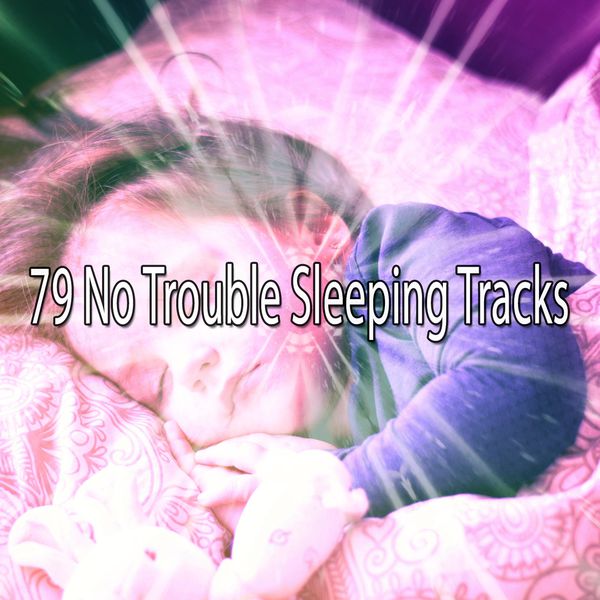 Help your newborn learn to fall asleep on their own by following a bedtime routine, putting them to bed when they're sleepy but still awake, and waiting for a few minutes to respond to their fussing when they do wake at night. Although your baby may still need to be fed during the night for some time, these tactics help them learn to nod back off without the help of your breast, arms, or a bottle.
Help your newborn learn to fall asleep on their own by following a bedtime routine, putting them to bed when they're sleepy but still awake, and waiting for a few minutes to respond to their fussing when they do wake at night. Although your baby may still need to be fed during the night for some time, these tactics help them learn to nod back off without the help of your breast, arms, or a bottle.
If your baby was premature or has other health considerations such as digestive problems or failure to gain weight, be sure to discuss their feeding schedule with their doctor before making changes.
Should you wake a sleeping baby to feed?
For the first one to two weeks of life – or until your newborn regains the weight they lost after birth – it's important that they wake up to eat about every two to three hours. Newborns usually do this on their own, but occasionally will sleep for longer. If your baby does sleep for a stretch of more than four hours during this period, wake them to eat.
After the first couple of weeks, when babies surpass their birth weight, most healthy babies don't need to be woken to eat as long as they're growing and feeding well. That means they're gaining weight as expected and producing at least four wet diapers and three poopy diapers per day. Talk to your doctor if you're concerned about your baby's growth or feeding habits.
What if my baby won't wake up to eat?
If your baby is healthy, has passed their birth weight, and is feeding and growing steadily, you usually don't need to wake them to feed. Unless their doctor tells you otherwise, let your baby sleep – they'll let you know when they need to eat!
If, however, your baby hasn't yet surpassed their birth weight, or if they were premature or aren't growing as expected, you do need to rouse them to eat anytime they sleep for more than four hours straight.
Know that newborns sometimes have a hard time waking up to eat for the first few days, especially if:
- they're small
- they have jaundice
- you had a difficult labor
- you had an epidural or other pain reliever during birth
If your baby is lethargic and uninterested in eating, these tips can help a groggy baby wake to feed:
- Look for signs that they're in a light sleep cycle, which include flutters under closed eyelids, arm and leg movements, and sucking movements.
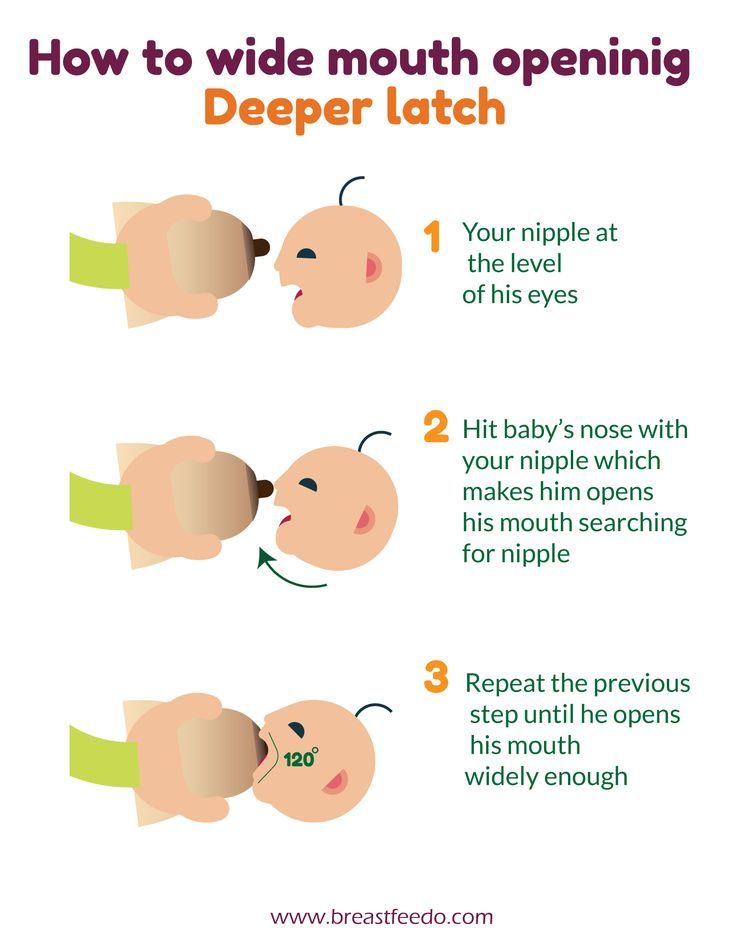
- Be sure the room is cool (around 18 C or 65 F) and your baby isn't overdressed, since being too warm makes babies sleepier.
- Try skin-to-skin contact and/or a laid-back breastfeeding position, which can encourage feeding.
Premature babies have unique nutritional needs and may not show hunger signs like crying.
If your baby is premature, or if you're concerned about your baby's weight gain or feeding patterns, talk to their doctor about how to ensure your baby is getting enough to eat.
Sources
BabyCenter's editorial team is committed to providing the most helpful and trustworthy pregnancy and parenting information in the world. When creating and updating content, we rely on credible sources: respected health organizations, professional groups of doctors and other experts, and published studies in peer-reviewed journals. We believe you should always know the source of the information you're seeing. Learn more about our editorial and medical review policies.
American Academy of Pediatrics. 2013. Sleeping through the night. https://www.healthychildren.org/English/ages-stages/baby/sleep/Pages/Sleeping-Through-the-Night.aspx [Accessed May 2022]
American Academy of Pediatrics. 2016. Failure to thrive. https://www.healthychildren.org/English/health-issues/conditions/Glands-Growth-Disorders/Pages/Failure-to-Thrive.aspx [Accessed May 2022]
American Academy of Pediatrics. 2018. Getting your baby to sleep. https://www.healthychildren.org/English/ages-stages/baby/sleep/pages/Getting-Your-Baby-to-Sleep.aspx [Accessed May 2022]
American Academy of Pediatrics. 2021. Weaning your baby. https://www.healthychildren.org/English/ages-stages/baby/breastfeeding/pages/Weaning-Your-Baby.aspx [Accessed May 2022]
Henderson JMT, et al. 2010. Sleeping Through the Night: The Consolidation of Self-regulated Sleep Across the First Year of Life. Pediatrics 126 (5): e1081–e1087. https://publications.aap.org/pediatrics/article-abstract/126/5/e1081/65212/Sleeping-Through-the-Night-The-Consolidation-of [Accessed May 2022]
La Leche League. 2016. Sleepy baby: Why and what to do. https://www.laleche.org.uk/sleepy-baby-why-and-what-to-do/ [Accessed May 2022]
2016. Sleepy baby: Why and what to do. https://www.laleche.org.uk/sleepy-baby-why-and-what-to-do/ [Accessed May 2022]
Mayo Clinic. 2022. Should I wake my newborn for feedings? https://www.mayoclinic.org/healthy-lifestyle/infant-and-toddler-health/expert-answers/newborn/faq-20057752 [Accessed May 2022]
National Sleep Foundation. 2022. Sleep training. https://www.sleepfoundation.org/baby-sleep/sleep-training [Accessed May 2022]
National Sleep Foundation. 2022. When do babies sleep through the night? https://www.sleepfoundation.org/baby-sleep/when-do-babies-sleep-through-night [Accessed May 2022]
Stanford Children's Health. n.d. Infant sleep. https://www.stanfordchildrens.org/en/topic/default?id=infant-sleep-90-P02237 [Accessed May 2022]
Colleen de Bellefonds
Colleen de Bellefonds is a freelance health and lifestyle journalist. She's raising her toddler daughter and newborn son with her French husband in Paris.
Up to what age to feed the baby at night and how to replace formula
Baby formula is only a forced measure to replace mother's milk in the absence of sufficient lactation or underweight in the baby. In all other respects, the infant formula feeding algorithm remains the same as with breastfeeding. The baby also needs nightly feedings about every 3-4 hours. This is due to scientifically proven facts. Babies up to a year old have an accelerated metabolism, food is digested faster, and naturally, they experience hunger at night. Also, any anxiety of the baby at night forces him to demand his mother's participation, and of course - food as a sedative. There is even a theory that children are genetically woken up to eat to avoid "Sudden Infant Death Syndrome" in their sleep.
In all other respects, the infant formula feeding algorithm remains the same as with breastfeeding. The baby also needs nightly feedings about every 3-4 hours. This is due to scientifically proven facts. Babies up to a year old have an accelerated metabolism, food is digested faster, and naturally, they experience hunger at night. Also, any anxiety of the baby at night forces him to demand his mother's participation, and of course - food as a sedative. There is even a theory that children are genetically woken up to eat to avoid "Sudden Infant Death Syndrome" in their sleep.
But also can't it continue indefinitely? The child grows, develops actively, from the age of 6 months receives a variety of complementary foods, and over time should form a normal daily routine. And for this you need to figure out: how to wean a child at night to eat the mixture in the most gentle ways.
Up to what age to give the mixture at night
Experts differ on this issue, but the average age when you can do without night feedings is nevertheless deduced. Infants with normal development can sleep peacefully at night without formula 10-12 hours from 9-12 months. Of course, if parents do not consider it necessary to restrict their child in nutrition, they can safely continue to feed their child at night and beyond. But they must be aware that, firstly, over time, these periods of eating become just a habit for the baby. And secondly, mothers should also think about their own well-being after sleepless nights. So, the approximate age of weaning a child from night feedings has been determined, it remains to find out how to replace the mixture for the night after a year for the first time of the transition to a new regimen.
Infants with normal development can sleep peacefully at night without formula 10-12 hours from 9-12 months. Of course, if parents do not consider it necessary to restrict their child in nutrition, they can safely continue to feed their child at night and beyond. But they must be aware that, firstly, over time, these periods of eating become just a habit for the baby. And secondly, mothers should also think about their own well-being after sleepless nights. So, the approximate age of weaning a child from night feedings has been determined, it remains to find out how to replace the mixture for the night after a year for the first time of the transition to a new regimen.
Night formula alternative
Formula feeding formula is extremely nutritious and delicious for your baby. Therefore, the nightly replacement should be unequal, so that the baby subsequently feels that he does not need to wake up for such food. For these reasons, many mothers, thinking about how to replace the mixture for the night, use not the best products. It is strongly not recommended to use compotes or juices, because the ultimate goal is a complete and painless rejection of night food. In addition, fruit drinking can cause flatulence and abdominal pain - not the most favorable factors for restful sleep.
It is strongly not recommended to use compotes or juices, because the ultimate goal is a complete and painless rejection of night food. In addition, fruit drinking can cause flatulence and abdominal pain - not the most favorable factors for restful sleep.
It is better to replace the traditional food at first with a well-diluted mixture, and then with pure water. At the same time, you need to try to slightly shift the period of falling asleep and provide the child with peace and a hearty dinner before going to bed. During the gradual transition to a new way of life, it is not necessary to immediately offer a diluted mixture to the awakened baby at night, it is better to try to calm him down in a different way - caress, rock him. And since night meals a priori will cease to be delicious food, the child himself will gradually forget about it, but the wise human body will be rebuilt anyway.
When a child starts sleeping through the night
Do your children sleep very badly at night, wake up 3 to 10 times, take a long time to sleep and protest against daytime sleep? You are not alone! Studies of children's sleep and surveys of parents around the world show that about 60% of parents of children from birth to three years old experience the problem of children's sleep in one form or another. Most often, these disorders are manifested in children in long and difficult falling asleep and frequent awakenings at night.
Most often, these disorders are manifested in children in long and difficult falling asleep and frequent awakenings at night.
“When will the baby start sleeping through the night without waking up? How to make sure that the baby sleeps all night, falls asleep quickly and without the active help of parents, and daytime sleep is long and of high quality? How to teach a baby to sleep at night without waking up? Almost all parents of badly sleeping children have such questions.
In response to these questions, the topic of teaching children to fall asleep on their own often comes up. Indeed, the inability to fall asleep on your own is one of the reasons for frequent awakenings at night. And children who have mastered the skill of falling asleep on their own sleep at night without waking up.
But how do you teach your child to fall asleep on their own? And will sleep training really solve all of your child's poor sleep problems day and night? In this article, we will analyze the topic of self-falling asleep in detail and you will understand what you need to do to teach your child to sleep through the night.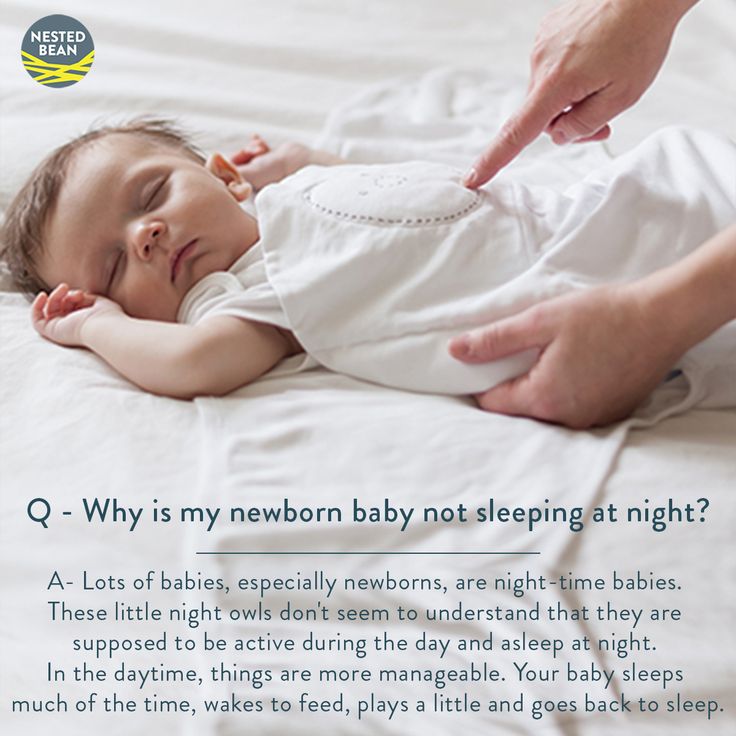
Content:
- What is self-falling asleep?
- Why should children be taught to fall asleep on their own?
- When can I start learning how to fall asleep on my own?
- How to prepare your baby for learning to fall asleep on his own?
- What are the methods of teaching self-sleeping?
What is spontaneous falling asleep?
Sleeping on your own is when a child falls asleep with little or no parental help. Putting down a baby who can fall asleep on his own looks like this:
- Parents perform a ritual of preparing for sleep0034
- Putting a sleepless baby into the crib
- Kiss him
- Say "Sleep baby"
- Turn off the lights and leave
- Baby falls asleep by himself in his own crib in 10-15 minutes
- At night, the baby wakes up for feeding and immediately falls asleep
- When waking up at night between sleep cycles, the baby moves on to the next cycle on its own
This kind of bedtime may seem like a miracle to most moms and dads who put their babies to sleep for several hours with motion sickness, feedings and rise to them 10 times a night.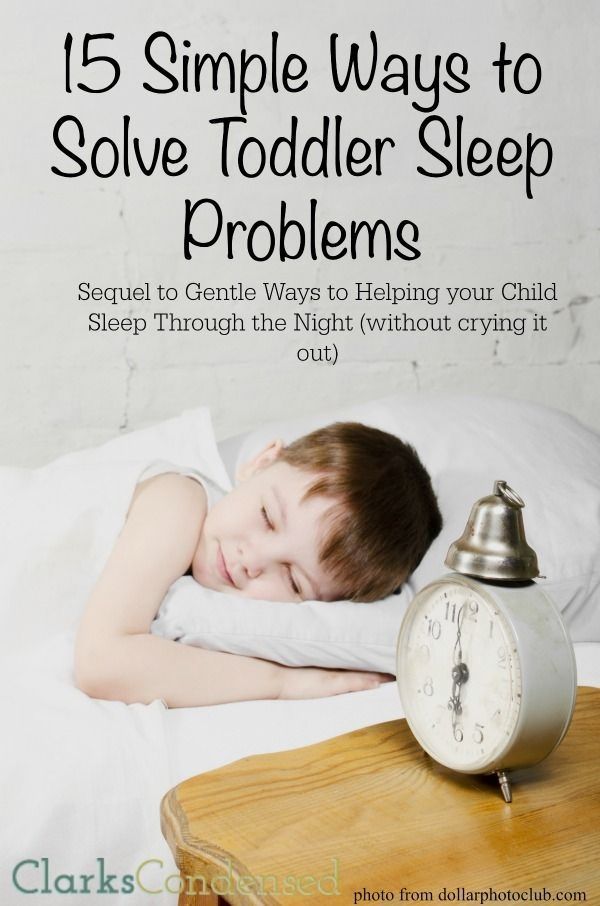 But we can say with confidence that this is not a miracle, but a reality! Because every healthy baby can learn to fall asleep on their own, and the task of parents is to help the baby master this.
But we can say with confidence that this is not a miracle, but a reality! Because every healthy baby can learn to fall asleep on their own, and the task of parents is to help the baby master this.
Falling asleep on your own is a skill that can be taught to any healthy baby from the age of 6 months.
Just like you help your baby learn how to drink from a cup or eat with a spoon, crawl, talk, walk, you need to help your child learn how to fall asleep on his own. All toddlers can learn these skills on their own sooner or later, but with your help they will learn them faster and more effectively. Teaching your baby to fall asleep on their own is the task of parents!
Why is it important to teach your child to fall asleep on his own?
Why is it so important to teach a child how to fall asleep on his own? Because the inability to fall asleep on your own is one of the reasons for frequent awakenings at night and short daytime sleeps. It's all about short-term awakenings between sleep cycles. All adults and children during a night's sleep wake up between sleep cycles (see "falling asleep - waking up" in the illustration). Only adults straighten the pillow and blanket, roll over to the other side and fall asleep again. Because adults know how to fall asleep on their own, without outside help.
It's all about short-term awakenings between sleep cycles. All adults and children during a night's sleep wake up between sleep cycles (see "falling asleep - waking up" in the illustration). Only adults straighten the pillow and blanket, roll over to the other side and fall asleep again. Because adults know how to fall asleep on their own, without outside help.
And infants with brief awakenings need help getting back to sleep. When awakening at night, children need to recreate the conditions under which they fell asleep, such as motion sickness or breastfeeding. And if these conditions can only be recreated with the help of parents, then parents will have to get up and help the child fall asleep.
Children who are taught to fall asleep on their own easily cope with short-term awakenings without the help of parents and wake up only for feeding.
It is important to understand that the inability to fall asleep on your own is NOT the ONLY reason for frequent nighttime awakenings.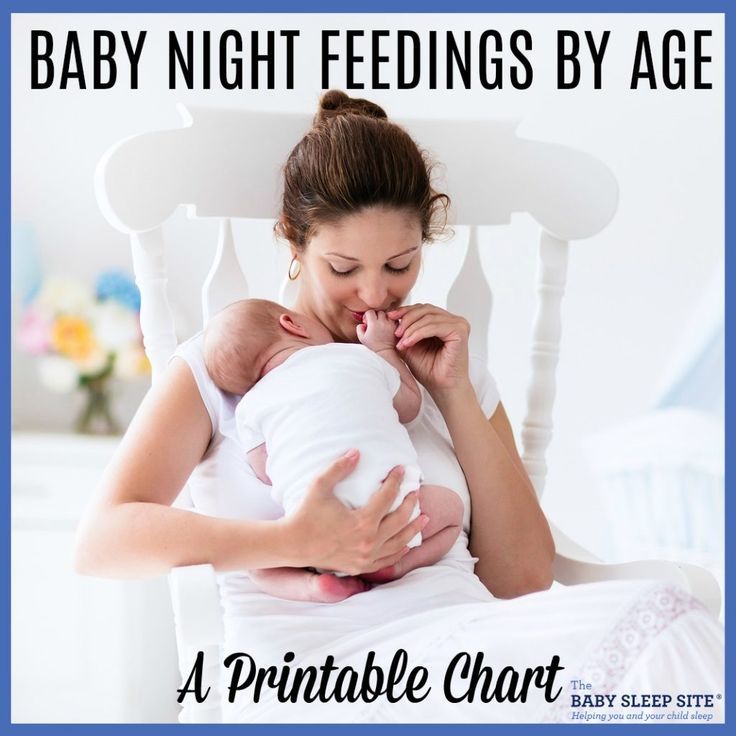 Therefore, before starting training, it is important to understand the reasons and prepare the baby.
Therefore, before starting training, it is important to understand the reasons and prepare the baby.
When can I start learning to fall asleep on my own?
Don't rush to start learning. One UK study shows that learning to fall asleep on your own before 6 months of age:
- causes stress for both mum and baby
- May cause feeding problems (whether breastfed or bottle-fed)
- The effect of any early learning does not guarantee the absence of sleep problems after 6 months
We do not recommend self-sleep training for babies under 6 months of age!
But you can instill the right sleep habits almost from birth. The first and surest step to falling asleep easily on your own is to use the different ways to soothe the baby , do not accustom to one method of soothing. Let the child sometimes fall asleep with other family members, not only with the mother. Let your baby at least try to find his own way to calm down and fall asleep, so put your baby to bed sleepy, but awake!
Let your baby at least try to find his own way to calm down and fall asleep, so put your baby to bed sleepy, but awake!
VIDEO LESSON
How to Teach Falling Asleep on Your Own?
More
What method of learning to fall asleep on your own should I choose?
In order to teach your baby to fall asleep on their own, many methods have been created. The essence of all methods is to give parents a clear algorithm of actions and help to clearly and consistently instill in the baby new associations for sleep. It is especially important to follow the algorithm for tired parents who stay up all night and often make “bad decisions” out of fatigue.
All the many existing methods of self-falling asleep can be divided into two main groups: hard methods (or Let Cry methods) and soft methods (or No Cry methods).
Hard or Let Cry Methods suggest rapid changes in associations to falling asleep, minimal or no parental assistance, and allow the child to cry during learning.
- There are 2 main methods in the Let Cry group of methods:
- Cry-it-out (CIO), "Cry before falling asleep", "Scream": method by Mark Weissbluth
- Time checks, Periodic Check Method, Controlled Crying Method: Method Richard Ferber / Edouard Esteville
Despite numerous studies confirming the effectiveness and safety of rigorous sleep training methods, they are heavily criticized by professionals and parents. And the argument is the danger of prolonged weeping. Crying is the baby's only way to communicate with the outside world, and ignoring crying can harm the baby's psyche and cause attachment disorders.
Soft or No Cry Methods advocates the slow and gradual replacement of one sleep association with another with maximum parental help and parental comfort. Among the soft methods, 3 main ones stand out:
- The Shuffle, Slow Distancing Method: Kim West method, which the Sleep, Kid team represents in Russia
- Put Up - Put Down, The Hug-Put Down Method: Tracy method Hogg
- Fading: Elizabeth Paintley's method
We encourage you to be very careful when choosing a method for teaching your baby to fall asleep on his own. Remember that prolonged crying before bed can develop into a negative association with sleep and negatively affect the child and his emotional state.
Remember that prolonged crying before bed can develop into a negative association with sleep and negatively affect the child and his emotional state.
The first task of the Sleep Baby project is the physical and psychological safety of the baby. Therefore, we adapt all the proposed methods, taking into account the views of modern psychology on the development of babies, they have been examined by child psychologists and breastfeeding specialists!
We have adapted the Kim West method to the Russian mentality and characteristics of parenthood. We made sure that the Slow Retract method is effective and has passed the test of time, it has been successfully used all over the world for more than 20 years!
Why do we think the Kim West Method is the best method possible? Because:
- Parents do not intervene where the child can cope on his own, and help where he cannot yet!
- Mom or dad stays in the room with the baby until he falls asleep.
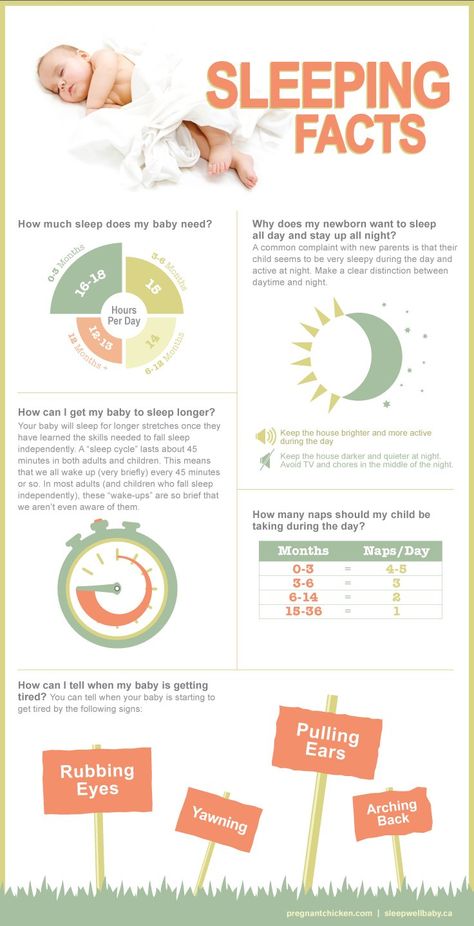
- Adults gradually reduce the degree of their assistance until the child masters the skill. The pace of change is individual!
- You can teach your baby to fall asleep on his own both in a separate bed and when sleeping together.
- The method is complex and requires an obligatory stage of preparation!
Be sure to pay attention to our video tutorial "How to teach your baby to fall asleep on his own?" >>
What is important to do before starting the course?
The most common mistake of all parents is to start learning to fall asleep on their own without preparation. Learning to fall asleep on your own without adjusting sleep conditions, sleep patterns and habits will be ineffective! Both the baby and the mother must be ready for change.
What is important to do before starting?
- Get a "green light from a pediatrician" to make sure there are no medical reasons affecting your baby's sleep
- Adjust the sleep conditions in which the baby sleeps
- Choose a sleep and wake schedule that is comfortable for your baby
- Help the baby to get away from negative associations for falling asleep
Choose a time to start training, at least 2 weeks without moving or significant changes in your usual way of life.